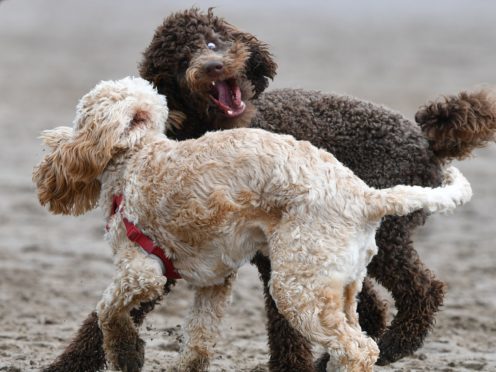Aggressive, over-excitable dogs are more likely to die young, a study has suggested.
Around one third of deaths in dogs in the UK are caused by undesirable behaviours, the Royal Veterinary College (RVC) said.
Researchers said such behaviours may be a sign of undiagnosed medical conditions or as a result of poor training.
More than three-quarters of all dogs to die from undesirable behaviours are put down, RVC said.
Those behind the study, who said it is the biggest ever undertaken into behavioural reasons for deaths in young dogs in the UK, suggested better training and socialising could help address the issue and potentially save the animals’ lives.
Pioneering work from Vet Compass into the impact of canine behaviour of their long term health and prospects https://t.co/uK7dN9Jw56 pic.twitter.com/H4SssRwr43
— Royal Veterinary College (RVC) (@RoyalVetCollege) July 24, 2018
The study looked at data on a quarter of a million dogs in the UK and found 1,574 dogs that had died before the age of three, the RVC said.
Aggression was the most common undesirable behaviour that led to death, with road accidents coming next.
Researchers also found that crossbred dogs were more likely to die from such behaviours than pure breeds, and breeds with the highest risk were the Cocker Spaniel, West Highland White Terrier, Staffordshire Bull Terrier, and Jack Russell Terrier.
Study supervisor Dan O’Neill said some owners use severe punishments including beatings and electric shock collars if their pets misbehave, meaning the animals are “at risk of compromised welfare”.
Dr O’Neill said: “(The study) suggests the importance of good socialisation of puppies by breeders, of sensible breed selection by owners and of careful dog training after acquiring a dog, to ensure that the lives of dogs and owners are fulfilling for all parties involved.”
He added: “Greater awareness of the scale of this issue can be the first step towards reducing the problems and making the lives of thousands of our young dogs happier.”
Steve Dean, chairman of the Kennel Club Charitable Trust, suggested better training of young dogs could cut the number of animals dying.
He said: “We hope that this new research will create awareness of the significant numbers of dogs that lose their lives because they have never been properly socialised or trained.”
The trust provides an annual grant to support the RVC’s VetCompass programme which conducted the study.
